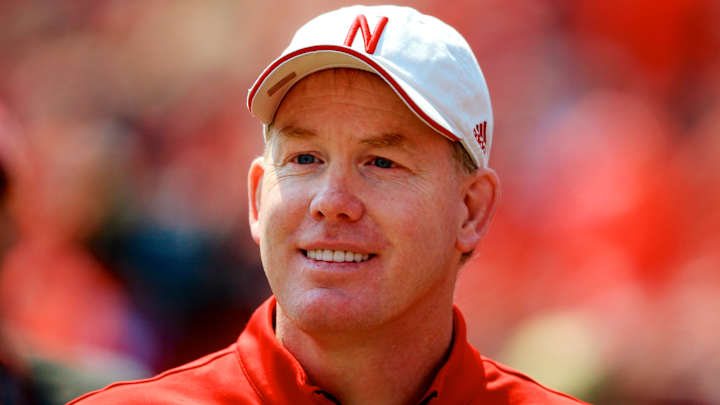Proposed reforms reflect new reality of football recruiting

The NCAA committee that proposed football recruiting reforms, which include the addition of early signing periods, wants to create more transparency and access for coaches and players in a process that has been accelerated in recent years, said a key member of the group.
Nebraska athletic director Shawn Eichorst told The Associated Press the football oversight committee created an interconnected and comprehensive package of reforms while acknowledging the new realities of recruiting.
''I think you need to think about it in that more broad context,'' Eichorst said in a phone interview Monday. ''I know people want to pull pieces and talk about the pieces, but really I think to understand and explain the rationale appropriately, you've got to understand the whole process.''
The proposal would change when and where summer camps and clinics can be held and limit so-called satellite camps. High school players would be allowed to take official recruiting visits in the summer before their senior years, conceivably creating opportunities for visits to be paired with attending a camp. The proposed changes, which could go into effect next year, would also allow a 10th assistant football coach and set a hard cap of 25 signees per year.
The piece of the proposal that has drawn the most debate is the creation of two early signing periods in June and December. The June period would allow prospects to sign binding national letters of intent before their senior years of high school. The Collegiate Commissioners Association, which administers the NLI, must approve and implement the new signing periods.
''I hear the reasoning is because there's so many de-commitments,'' Ohio State coach Urban Meyer said in September about early signing periods before the Division I Council passed the oversight committee's proposal in early October. ''So because 17-year-olds are de-commiting, let's give them a legal document so they can't de-commit. That's not very smart. Young people have a right to choose where they want to go to school. Period. Let them de-commit 100 times.''
Alabama coach Nick Saban said he was against early signing because it could put players who take big steps forward in their development as seniors at a disadvantage after early signees scoop up scholarships.
But there is no consensus among coaches. Michigan's Jim Harbaugh is in favor of an early signing period. Clemson's Dabo Swinney liked the idea, but prefers the period be in August. Arizona coach Rich Rodriguez has endorsed eliminating signing periods altogether, instead allowing schools and prospects to sign whenever both agree.
Mississippi coach Hugh Freeze said the proposals make the recruiting process seem rushed.
Eichorst, who was chairman of the subcommittee that worked on the satellite camps issue, said the NCAA's research indicates the process already is moving faster than ever.
A recent survey showed 30 percent of more than 1,400 football players who signed a national letter of intent gave verbal commitments during their junior years or during the summer before their senior years.
''We wanted to get more transparency there,'' Eichorst said. ''In order to do that you had to reorder things a little bit because what we know is there are a number of kids who are being identified, evaluated, offered and commit before they start their senior year. And they're doing that without the benefit of official visits. And they're doing that without the benefit of permissible off-campus contact.''
De-commitments and flip-flopping by highly touted recruits gets a lot of attention, but it is still relatively uncommon. The survey showed 82 percent of football signees verbally committed prior to signing. Of those, 90 percent signed where they committed.
The NCAA also wants to better regulate so-called third parties, such as seven-on-seven coaches who are often not affiliated with high schools, in the recruiting process and keep the emphasis on high school coaches.
The reforms are also supposed to alleviate what can seem like nonstop recruiting for coaches.
''What we wanted to see was greater balance with our coaches and our current students,'' Eichorst said. ''And what we constantly hear from our coaches and others is often times I spend more time recruiting my next class than coaching my current.''
Of 55 NCAA sports, football is one of four that does not have an early signing period.
According to the NCAA, 25,316 Division I student-athletes signed a national letter of intent in 2015-16. Of those, 18,103 had the opportunity to sign early and about 66 percent did.
''Why are we treating football players different from all the other students that come to us?'' Eichorst said. ''There's no good answer for that.''
---
The AP's college football site at http://collegefootball.ap.org
